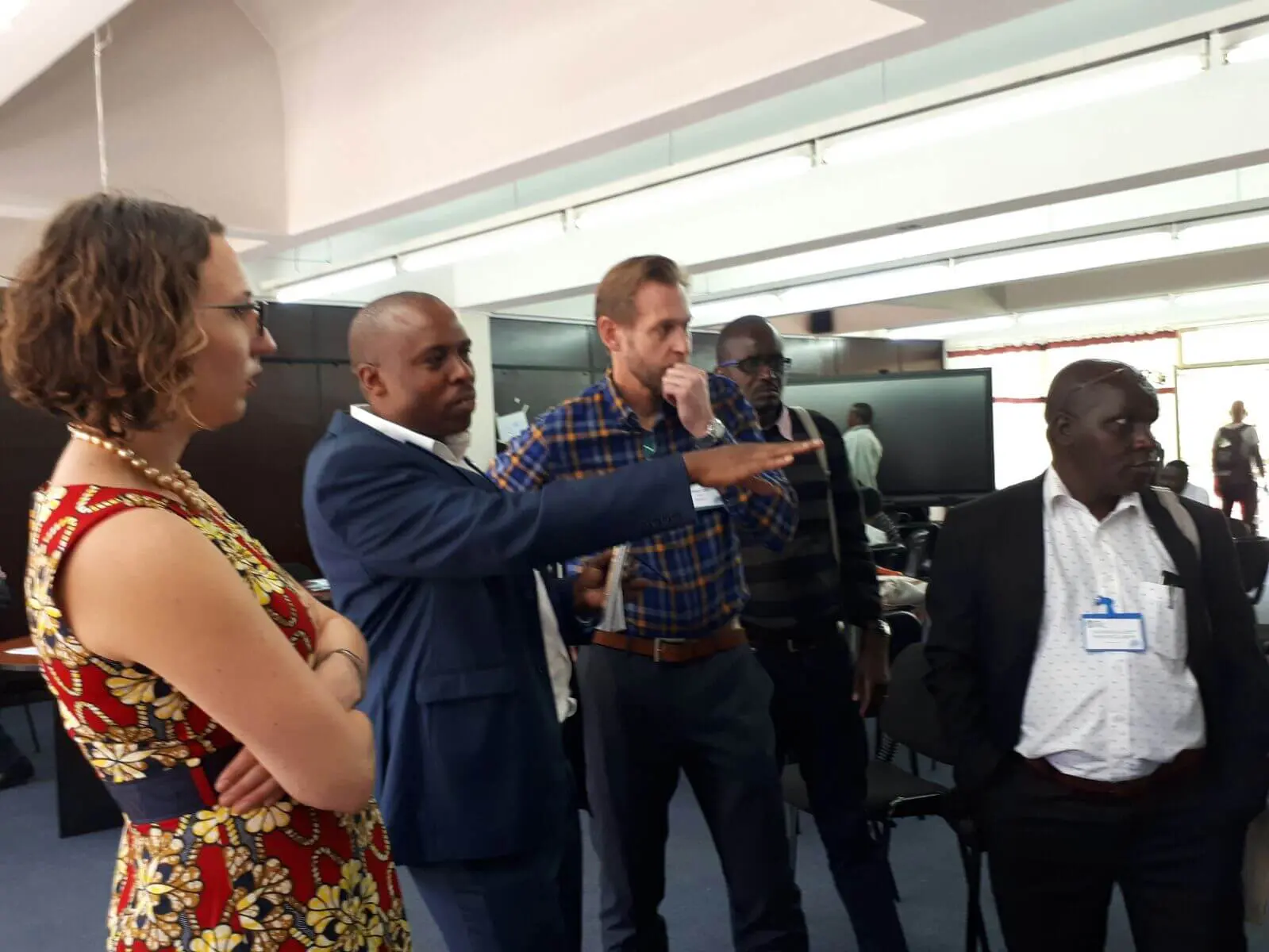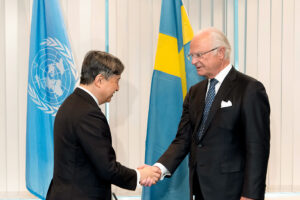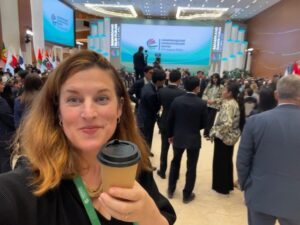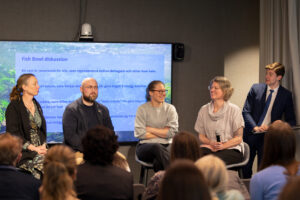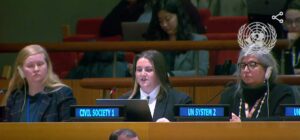A journey to the Water Integrity HUB in Addis Ababa
Programme Officer, Pilar Avello, recently visited the Water Integrity HUB in Addis Ababa. Follow her journey to Ethiopia where she met with important partners and stakeholders working towards building integrity into programming and improving capacity building.
Istanbul Airport, Sunday 7th May – I am waiting for my flight to get to Addis Ababa. It is my first time in Ethiopia and I am very excited to attend the Water Integrity Forum. SIWI will be presenting two sessions, the first one discusses why it is important to talk about water integrity andwhat does it mean to integrate integrity into programming? The second session is about capacity building in water integrity, what have we achieved in the past years? What are the lessons from our programmes in Sub-Saharan Africa and the MENA region? What can be improved? As I am thinking about these important questions I suddenly realize it’s time for boarding.
Addis Ababa, Monday 8th May – After some challenges getting to the hotel, we finally arrive at the preparatory partners meeting. Here we meet with colleagues from WIN, OECD-Water Governance Initiative, the Ethiopian Ministry of Water, Irrigation and Electricity (MoWIE), GWP, IRC, IWMI, the UNDP Water Governance Facility at SIWI, GIZ, MetaMeta, and KEWASNET. Tomorrow we will be meeting professionals from Ethiopia, Kenya, Zambia, Uganda, Tanzania and Benin, who will join the meeting to share their experiences in-country.
Tuesday 9th May, Day 1 at Water Integrity HUB. Here we are, starting the day with a ‘walk-in session’. In the afternoon, different organizations presented specific case studies. Especially interesting is the experience shared by the Zambian Water regulator (NWASCO). They show how they are improving water reading procedures by establishing a system which captures pictures of the readings and uploads them to a billing system platform that then creates an invoice, reducing risk of corruption.
In the afternoon, during our SIWI session Capacity Building in Water integrity, Hans Hartung presents the e-learning programme implemented by GIZ in Uganda (more info here). James Leten, SIWI programme manager in Sub- Saharan and the MENA region, presents capacity building activities in the region (more info here). Some key messages they share include:
- E-learning platforms can be costly to set up but are cost effective in the long term
- Trainees ask for theory and concepts presented during e-learning courses based on real context, existing cases and examples
- Training and awareness creation are strategic “soft” entry points to strengthen integrity, it opens dialogue on water integrity, but needs to be complemented by “harder” interventions on the ground like policy development and implementation.
- Mentoring programmes supporting mentees in the implementation of their action plans can be a success for generating change
- Regional political platforms are excellent for awareness raising of decision-makers and for showing successes and generating interest
Wednesday 10th May, Day 2 at Water Integrity HUB – Today we work in groups to develop an idea and proposal around Capacity Development in Water Integrity. It seems like the same old idea is revolving in every programme: How to do something that adds real value? Here we are, 6 people from different backgrounds, brainstorming together. It is challenging but a great process of putting our brains together and understanding the different perspectives.
We take stock that ‘integrity solutions’ are different and depend on the social and political context and factors like the type of sector (environment, climate change, water, etc.), the management function enforced, the region, the setting in which the management function is enforced (Urban, Rural, Peri-Urban), or the category and role of the enforcing partner (ex. NGO as watchdog, public institutions as service provider, media, etc.).
Why not, then, have a water integrity focused One-Stop-Shop? Something like a Capacity Building “Hub” able to respond rapidly to the different type of water integrity needs, in a flexible way. During the group work, we start to become more and more excited with the idea of having a knowledge depository where we gather and share national, regional and international water integrity knowledge. We agree that we want a growing community of practitioners to create sub-national, national, sub-regional and regional Water Integrity Collective Action. Let’s call it the HUB!
Thursday 11th May, Day 3 at Water Integrity HUB – Today we can test the HUB idea during the marketplace; forum participants visit different stands where ideas are presented and poster conveners receive feedback. Our very communicative HUB salesmen are Hakan Tropp and Joseph Kipkorir Sigi Langat from Bomet county in Kenya. The HUB aims to create a network/community of practitioners to exchange knowledge on water integrity; to have regional and sub-regional coordination for water integrity capacity development; to gather, generate and share knowledge; to support existing capacity structures in countries; to learn and share between countries and sub-regions; and to develop a pool of qualified trainers and mentors for peer to peer coaching.
The activities of the HUB would range from provision of training (virtual and physical), development of Integrity Action Plans, mentoring and implementing integrity activities (virtual and physical), to peer-to-peer coaching; from regional to sub-regional coordination and knowledge sharing workshops; from e-Network facilitation, to knowledge development and management.
The idea receives a lot of attention! We receive many comments and recommendations, like establishing a small secretariat, or that it should be regionally-based and anchored in a recognized institution. Moreover, it is recommended that there should be a right balance between virtual and physical trainings, should include an e-platform for knowledge and experience, and should keep open track of demands on an e-platform.
Stockholm Friday 11th. I arrive back home, with a luggage full of food for thought. Back in an almost snowy Stockholm, it is time to digest and transform “the HUB” from a nice, cool idea into a useful reality.
We at the Water Governance Facility feel inspired by the many experiences shared, the detailed cases studies, the honest discussions, the success and the failures; but most of all, the truly and unique belief that water integrity is more than ever crucial to secure water resources for our future generations.
I wish to express my thanks to the #WIF17 organizers and participants and see you at the HUB!
